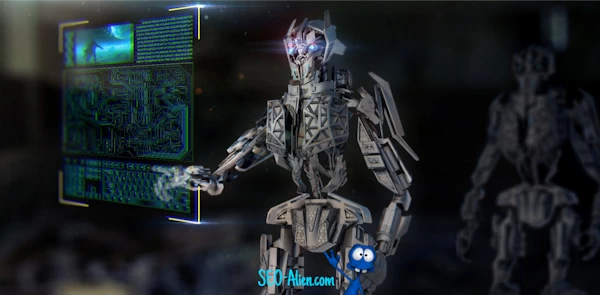Elon Musk's Concerns About AI: What Does It Mean for AI Tools for Content Marketing?
If you're looking to create content that can reach your target audience and rank on the first page of search engines like Google, writing a blog post is an essential part of digital marketing.
Elon Musk has expressed concerns about the potential dangers of artificial intelligence, and has called for more regulation in the field.

Made with DesignCap
However, it is not clear whether he would want to stop AI altogether. Is it possible that he would want to see AI developed in a safe and responsible way, rather than seeing it stopped altogether?
Google's Bard is a large language model, also known as a conversational AI or chatbot trained to be informative and comprehensive. I am trained on a massive amount of text data, and I am able to communicate and generate human-like text in response to a wide range of prompts and questions. For example, I can provide summaries of factual topics or create stories.
It is not clear whether Bard or other content marketing ai tools would be affected by any efforts to stop AI. It is possible that Bard could be shut down or regulated if there were concerns about its safety or potential for misuse. However, it is also possible that Bard could be used to help develop safe and responsible AI, or to educate people about the potential dangers of AI.
The term "artificial intelligence" was first used in a proposal for a workshop on the topic, written by John McCarthy, Marvin Minsky, Nathaniel Rochester, and Claude Shannon, and submitted to the Rockefeller Foundation in 1955. The workshop, which took place at Dartmouth College in 1956, is considered to be the official birth of the field of artificial intelligence.
However, the idea of creating intelligent machines has been around for much longer. The ancient Greeks, for example, were fascinated by the idea of automatons, or machines that could move and behave like humans. In the 18th century, the French philosopher René Descartes proposed that the human body was a machine, and that the mind was a separate entity that controlled the body. This idea, known as dualism, has been influential in the development of artificial intelligence.
In the 20th century, advances in computer science and mathematics made it possible to begin to seriously consider the possibility of creating truly intelligent machines. In 1950, Alan Turing published a paper in which he proposed the Turing test, a test of a machine's ability to exhibit intelligent behavior. The Turing test is still used today as a benchmark for artificial intelligence.
Since the 1950s, there have been many advances in artificial intelligence. Early AI systems were focused on solving specific problems, such as playing games or proving theorems. More recent AI systems are more general-purpose, and are able to learn and adapt to new situations. AI is now being used in a wide range of applications, from self-driving cars to medical diagnosis.
The field of artificial intelligence is still in its early stages, and there is much that we do not yet understand about how to create truly intelligent machines. However, the progress that has been made so far is remarkable, and it is likely that AI will continue to play an increasingly important role in our lives in the years to come.
Join the discussion about AI and its potential impact on society.
AI is a rapidly developing field with the potential to change our lives in many ways. Ultimately, the future of AI is uncertain. It is possible that AI could be used for good or for bad. It is important to have a discussion about the potential dangers of AI, and to develop safeguards to ensure that AI is used safely and responsibly.
It's important to have a discussion about the potential benefits and risks of AI, and how we can ensure that AI is used for good. Let's have a conversation about AI! Please leave your comment below.
About the Author:
The SEO-Alien is a project started in 2009 regarding all things online marketing. The site started out more of a diary of predictions, suggestions and references to things I frequently used for online marketing... before social media marketing was even an option.
I hope you find the information and tools presented here useful and something worth sharing with others.
If there is anything else about online marketing or any online advertising strategy you think would be helpful, please let me know.



